How Our Universe Composes Itself
Ours: The Case for Universal Property
Capitalism has two tragic flaws: it relentlessly widens inequality and destroys nature. We must fix both flaws ASAP, but how? OURS argues that we must go to their roots, which lie in profit- maximizing private property rights. We can’t abolish those rights, but we can and should counter-balance them with property rights owned by future…
With Liberty and Dividends For All
Jobs alone can’t sustain a large middle class in the future—there just aren’t, and won’t be, enough good-paying jobs to do that. If we want to retain a large middle class in America, we must supplement labor income with non-labor income. The best way to do that is with dividends from wealth we own together.
Pawns
Describes how teenagers are recruited, trained and turned into pawns of American foreign policy, and argues for a right to conscientious objection to specific wars.
Climate Solutions
Demystifies climate policy so that citizens can play an active role in forming it. Describes local, state and national policy options and encourages citizens to get involved.
Capitalism 3.0
Proposes a new operating system for capitalism in which critical ecosystems would be managed by trusts on behalf of future generations and all living persons equally.
Who Owns the Sky?
Argues that the atmosphere is a commons and that by treating it as such, we can curb greenhouse gas emissions while paying dividends to everyone. Calls for creation of a sky trust to manage America's share of the atmosphere on behalf of future generations and all Americans equally.
The People’s Land
Two hundred years ago, America envisioned itself as a democratic nation of independent land owners. Today, in many places, giant absentee landlords—timber companies, railroads, energy and agribusiness corporations—dominate the lives of local residents. This book delineates both the history of land ownership in America and potential ways to broaden it.

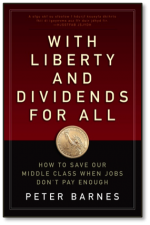

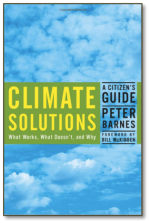
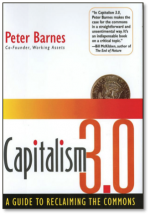
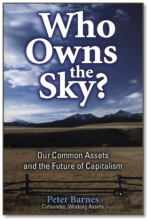
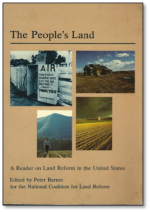
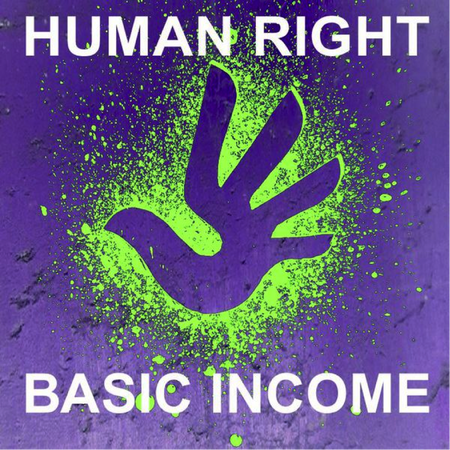
 Free distribution with attribution
Free distribution with attribution